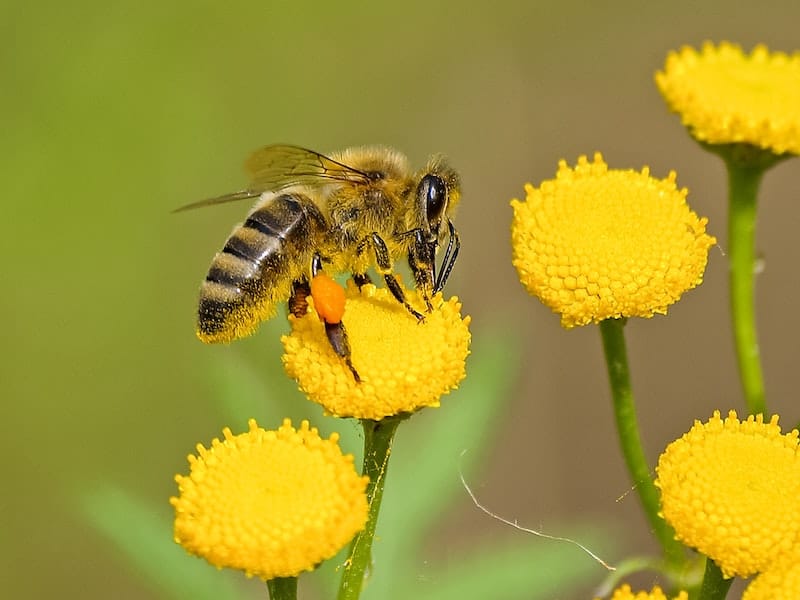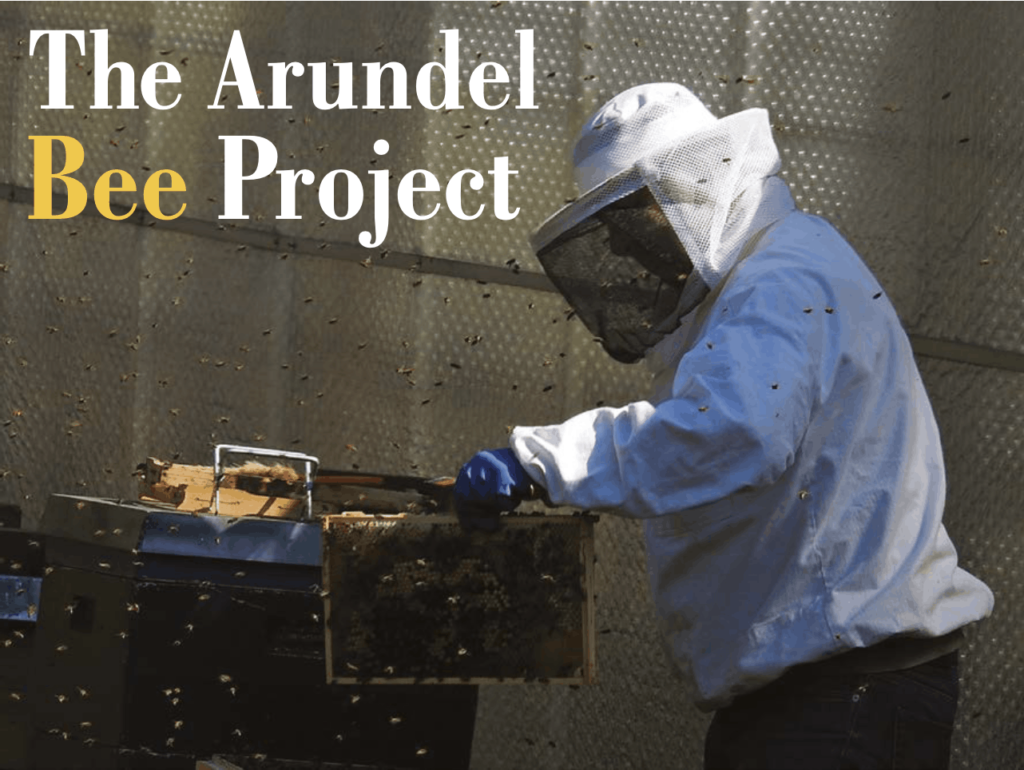Community header template
- Home
arrow_drop_down
- News
arrow_drop_down
- What’s On
- Local Information
arrow_drop_down
- Community Groups
arrow_drop_down
- Business Support
arrow_drop_down
- Advertising Rates
- Business Networks
- Akin Arundel
- Arundel Chamber of Commerce
- Consultants, Admin Support & Office Space
- Film Location & Production Support
- IT & Technical Support
- Legal, Financial Planning, Accountants And Insurance
- Local Publications And Media
- Marketing, Printing & Digital
- Business Newsletter
- Local Directory
arrow_drop_down
- Estate & Lettings Agents & Architects
- Health, Beauty & Wellbeing
- Home & Gardening Services
- Legal, Financial Planning, Accountants And Insurance
- Photographers, Fashion & Lifestyle
- Retirement, Care & Funeral Services
- Travel, Holidays & Languages
- Tradesman, Builders and Property Services
- Vehicle Repairs, Storage, Hire & Taxi Services
- Weddings, Events & Entertainment
- Contact
The Arundel Bee Project

Nick Field is a local resident who, in his own words, ‘loves Arundel, has a newly discovered passion for beekeeping and therefore sees this as an opportunity to unite the two while providing a community project that will benefit the town, it’s people and the environment’. If you missed the Bee Project meeting held last month, this article gives an update and explains how you could get involved.
There can’t be many people who are unaware of the recent media coverage of the planet’s environmental problems. While some of the challenges may require major changes in lifestyles and some solutions will have to be driven by governments and world agencies, many have been thinking what we as individuals can do to help and it is partly with this in mind that The Arundel Bee Project has been launched.
Working with a variety of organisations and residents, the aim is for Arundel to be declared ‘The UK’s First Bee Friendly Town’. In order to achieve this- the title would be awarded by the charity The Bee Friendly Trust- the town will need to identify and create a number of mini
projects that will sit collectively under the title of The Arundel Bee Project. To get the ball rolling, over the last few months there have been numerous meetings with a wide range of organisations and individuals who have expressed an enthusiastic interest in being involved and who will hopefully go on to play a key role in the project. Amongst these are Arundel Town Council, Arun District Council, West Sussex County Council, The Norfolk Estate, The Angmering Estate, Arundel Castle, The South Downs National Park, DEFRA, The Bee Friendly Trust, Ford Prison, Arundel Scouts, Arundel Gardens Association and The British Beekeepers Association. It is anticipated that other organisations will become involved as the project develops. However, it must be stressed that this is very much a community project, where individuals and groups are encouraged to come forward with ideas, suggestions and offers of help, rather than it being something driven just by large groups while everyone else sits back and feels excluded!
Why do this?
The project has several objectives. Firstly, on a local level, it will try to address the alarming decline in the number of pollinators in general and bees in particular over the last few years. While the reasons for this decline are still not totally understood- the use of insecticides is suspected in playing a large part but there are almost certainly other factors- the potential results of this decline are very clear. It has been calculated that approximately a third of the food we eat will have been the end result of a process beginning with pollination. To put it simply, without bees and other pollinators we would have major food supply problems- so preserving or increasing their numbers is ‘a good thing’.
Secondly, media coverage of the project will raise the profile of Arundel to the general public and therefore increase visitor numbers. The recent work being undertaken by The Arundel Project has highlighted the importance of tourists for the town’s traders. Like them or not, without visitors coming to our town and spending money, many of our shops, restaurants and pubs would struggle to survive. Initiatives that raise the profile of Arundel should help to raise the number of visitors to a level where we can all continue to enjoy the retail outlets that the town offers. With the environment at the forefront of many current news stories, a successful project should receive considerable media interest.
Thirdly, it is hoped that it will create a genuine community project that will bring a wide range of residents together to create something that will benefit us all. There has been more than enough division both nationally and locally over the last few years- a project that is owned by the people of the town, bringing them together to create something new and different, has surely got to be good thing?
Projects that have been discussed, and in some cases are already underway, include the formation of a Community Apiary (the name for a collection of beehives); displays of bee friendly flowers on the two main roundabouts on the A27 at Arundel and the verges between them; the creation of a Pollinators Garden on the land opposite the museum where the old public toilet block was before it was demolished ; educational programmes involving the two local schools and greatly increasing the floral displays within the town. This last item was something that came up repeatedly in the public meetings held by the Arundel Project during last Autumn.
For residents, the Community Apiary, which will be located next to the Community Orchard at Herington Field, will present the opportunity to learn more about bees and beekeeping, using a mixture of community and privately owned hives under the watchful eyes of experienced beekeepers and, for those that want to, the chance to become fully fledged beekeepers.
West Sussex County Council are very keen to develop the idea of wild flowers being used on the roundabouts and roadsides and are working closely with Arundel Town Council to develop plans. As with the Arundel Bee Project in general, this will need a long term plan as it will take several seasons for the plants to become fully established, but this has already been done very successfully by other authorities in the country and there is no reason why this can’t be replicated in Arundel.
I know that more than a few residents have despaired at the lack of use of Jubilee Gardens North (the aforementioned land opposite the museum) over the last couple of years, but with the `Town Council, Angmering Estate and The Castle all willing to become involved, the hope is for this to be developed into a Pollinators Garden, an area with plants and shrubs particularly attractive to pollinators, along with seating and display boards identifying the insects that will be present.
July will see Bee’s Needs Week, an annual event coordinated by DEFRA. This is when we anticipate the town receiving the award (did you know that the government has a Minister of Pollination?! Hopefully they will make the presentation), and initial plans are for the town to host a number of events to coincide with that, including talks, workshops, perhaps a market of bee related products, maybe an exhibition of bee art and whatever else people can come up with.
These are just a few of the ideas that have been mooted in the first few months of meetings and discussions. Hopefully there are residents who would like to drive their own related projects or just be involved generally. DEFRA have shown a lot of interest, as they feel that if together we can make a success of this, the concept of Bee Friendly Towns could be launched throughout the country in future years- but Arundel would be the first one.
How do you get involved?
Firstly, if you use social media, join The Arundel Bee Project Group on Facebook. There are already over 150 Arundel based individuals who have joined up, and this is a good place to have discussions, suggest ideas and hear all new developments. There will soon be a website for the project- and a public meeting is being planned to take place at the Town Hall in early spring, where you will be able to hear the latest developments, ask questions and most importantly- get involved!

For residents, the Community Apiary, which will be located next to the Community Orchard at Herington Field, will present the opportunity to learn more about bees and beekeeping, using a mixture of community and privately owned hives under the watchful eyes of experienced beekeepers and, for those that want to, the chance to become fully fledged beekeepers.
West Sussex County Council are very keen to develop the idea of wild flowers being used on the roundabouts and roadsides and are working closely with Arundel Town Council to develop plans. As with the Arundel Bee Project in general, this will need a long term plan as it will take several seasons for the plants to become fully established, but this has already been done very successfully by other authorities in the country and there is no reason why this can’t be replicated in Arundel.
I know that more than a few residents have despaired at the lack of use of Jubilee Gardens North (the aforementioned land opposite the museum) over the last couple of years, but with the `Town Council, Angmering Estate and The Castle all willing to become involved, the hope is for this to be developed into a Pollinators Garden, an area with plants and shrubs particularly attractive to pollinators, along with seating and display boards identifying the insects that will be present.
July will see Bee’s Needs Week, an annual event coordinated by DEFRA. This is when we anticipate the town receiving the award (did you know that the government has a Minister of Pollination?! Hopefully they will make the presentation), and initial plans are for the town to host a number of events to coincide with that, including talks, workshops, perhaps a market of bee related products, maybe an exhibition of bee art and whatever else people can come up with.
These are just a few of the ideas that have been mooted in the first few months of meetings and discussions. Hopefully there are residents who would like to drive their own related projects or just be involved generally. DEFRA have shown a lot of interest, as they feel that if together we can make a success of this, the concept of Bee Friendly Towns could be launched throughout the country in future years- but Arundel would be the first one.
How do you get involved?
Firstly, if you use social media, join The Arundel Bee Project Group on Facebook. There are already over 150 Arundel based individuals who have joined up, and this is a good place to have discussions, suggest ideas and hear all new developments. There will soon be a website for the project- and a public meeting is being planned to take place at the Town Hall in early spring, where you will be able to hear the latest developments, ask questions and most importantly- get involved!
